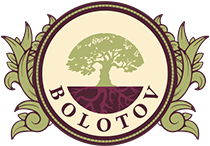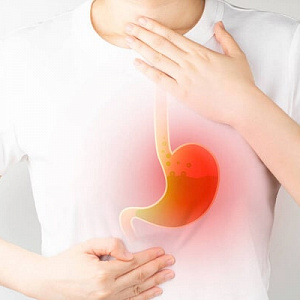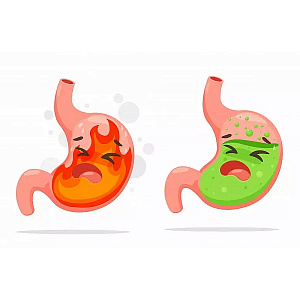Psoriasis is a disease that affects 1 to 5% of people. Its treatment is a complex and long process that includes a whole range of measures. One of the effective treatment methods of mild and moderate forms of psoriasis is herbal medicine.
Academician Bolotov has developed a whole range of unique herbal products that can significantly alleviate itching, skin redness and its inflammation in psoriasis. These are Bolotov Gel for psoriasis and Bolotov Vinegar for psoriasis, which, when used in combination, can significantly alleviate the course of the disease.
Psoriasis symptoms
Psoriasis is a disease connected with epidermis inflammation and, as a result, excessive development of keratinocytes. Normally, keratinocytes are skin cells that produce its keratin, horny layer. Their function is to protect the skin from damage. However, in the case of prolonged inflammation against immune disorders background, the development of keratinocytes goes the wrong way. Plaques and papules with prominent edges form on the skin.
Another, most unpleasant psoriasis symptom is the constant inflammation and itching of the affected skin. In severe psoriasis forms, in addition to the skin, joints can be affected.
Psoriasis treatment
The treatment of psoriasis is always complex and long-term process, it includes remedies to restore immunity, relieve inflammation, and eliminate itching.
Herbal medicine plays an important role in this disease treatment. Herbal products can reduce itching, inflammation and help restore the normal functioning of skin epithelium. Academician Bolotov has developed an unparalleled natural gel for psoriasis, based on nutmeg and plantain, which allows you to quickly relieve psoriasis symptoms, and with long-term intake, promote a stable remission. The gel does not leave any spots on clothes, and is perfectly absorbed into the skin.
The Gel components for psoriasis according to Bolotov include a complex of salts and plant extracts obtained using unique methods developed by Academician Bolotov, as well as gelling agents based on seaweed.
How does Bolotov Gel work for psoriasis?
The Gel components from psoriasis include extracts of almonds, celandine, plantain, aloe vera. The unique method of extracting plant materials according to Academician Bolotov’s method allows you to fully isolate the active components of plants.
Almond nuts belong to the group of acidogenic nuts that activate metabolism and reduce the intensity of autoimmune reactions. These reactions are the basis of psoriasis pathogenesis. The bitterness and glycosides contained in walnut help to reduce redness, irritation, and reduce papules size.
Traditionally great plantain leaves have been a well-known remedy for the treatment of skin diseases. They contain mucous and glycoside aucubin, tannins and ferments. Their use can reduce skin inflammation, due to the normalization of subcutaneous tissue and blood vessels.
The action of the main components of the product is enhanced by the action of chelidonine and sanguinarine alkaloids of celandine, glycosides from aloe ingredients. As a result, the restoration of the damaged vascular wall, the processes of regeneration and resorption of papules are accelerated, the natural structure of the skin is restored.
The unique method of obtaining raw materials according to the method of Academician Bolotov allows you to fully isolate the active plant components. The sulfate complex in the products components reduce swelling, promotes the removal of excess fluid from the tissues, locally normalizes the salt composition of the tissue fluid. The semi-rare form of the gel allows the active substances to easily penetrate into the vessels.
How to apply Bolotov Gel for psoriasis?
In case of psoriasis, the gel is gently rubbed into the affected skin areas 2-3 times a day for 3 months.
Treatment should be carried out only during remission! Rubbing the gel during disease exacerbation can worsen its course!
The action of the gel is greatly enhanced if it is used together with Bolotov Vinegar for psoriasis
What is Bolotov Vinegar for psoriasis and how does it work?
Bolotov Vinegar for psoriasis is another development of the Bolotov Center based on unique plant extracts.
The process of plant raw material fermentation increases the availability of medicinal substances contained in herbs to come to the body. Nettle is no exception. Nettle herb fermentation according to Bolotov allows you to extricate carotenoids, phytosterols, and nettle porphyrins - exactly those substances that are most effective in psoriasis. Moreover, in the acidic environment of apple vinegar, iron, ascorbic acid and mineral salts become more available, the high content of which is famous for nettle as well.
In combination with apple, acetic, pyruvic acids of natural vinegar, formic acid and tannins contained in nettles can reduce skin irritation. At the same time, the local barrier function of skin is restored. This effect is especially important when Vinegar is applied externally.
The complex action of the product allows you to gently relieve itching and inflammation. Epithelium recovery acceleration, resorption of psoriatic plaques is another result of Bolotov vinegar intake for psoriasis.
How to take Bolotov Vinegar for psoriasis
The product is internally taken, 1 tsp. of vinegar diluted in 50 ml of water, 3 times a day, 20 minutes before meals. Treatment course is for 2 months without interruption and can continue until complete recovery.
For external use, Bolotov vinegar for psoriasis is diluted in water in a ratio of 1:4 - 1:5, and compresses are applied to the affected skin. The compress application time is 10-15 minutes. Avoid getting the vinegar solution on the mucous membranes. In this case, the product is washed off with plenty of water.
To increase immunity and reduce itching in psoriasis, it is recommended to rinse head skin and hair daily with a tablespoon of Bolotov Vinegar solution in a liter of water.
Bolotov Vinegar intake is contraindicated during pregnancy and lactation, as well as with individual intolerance to the product components.




